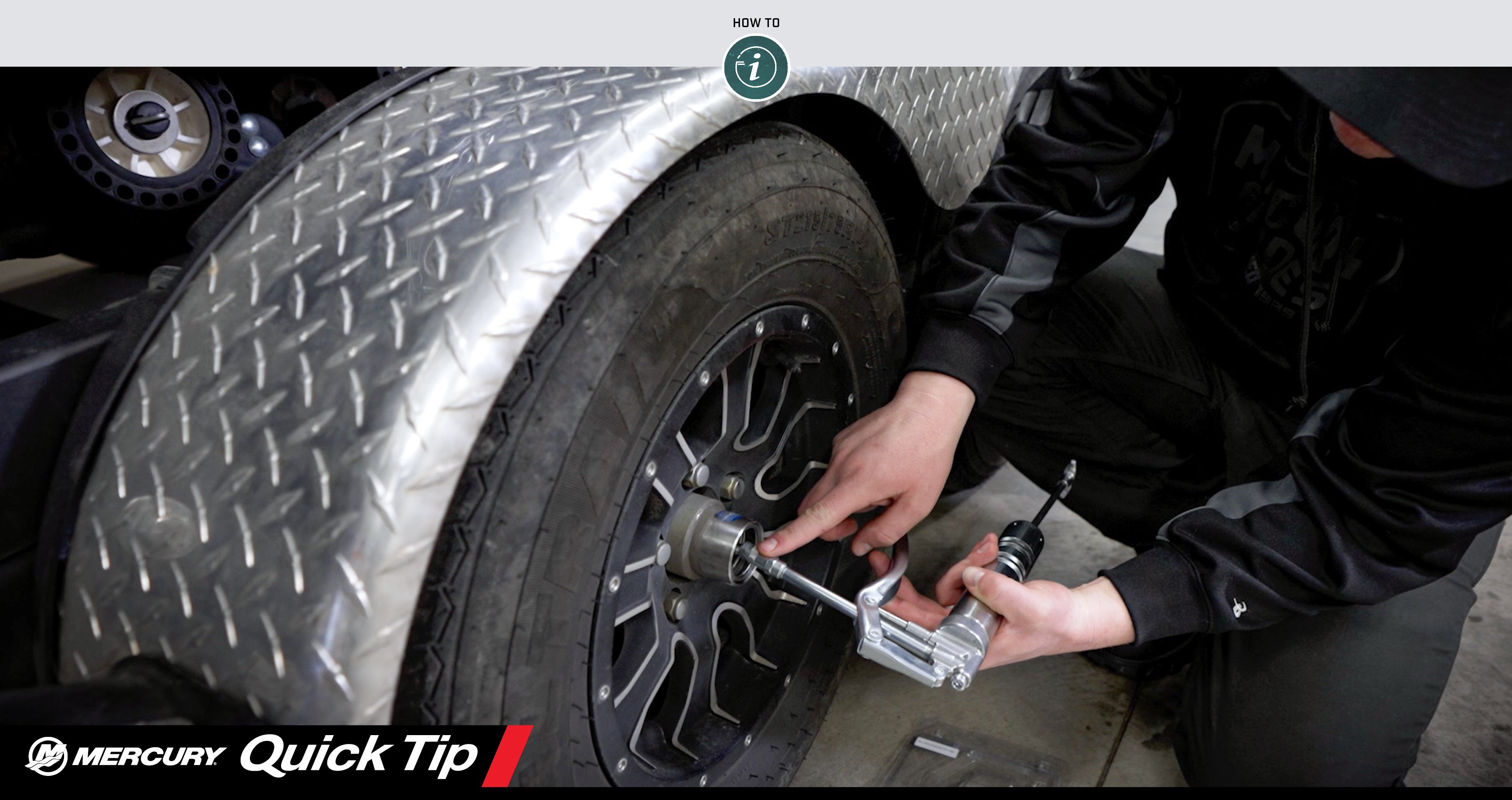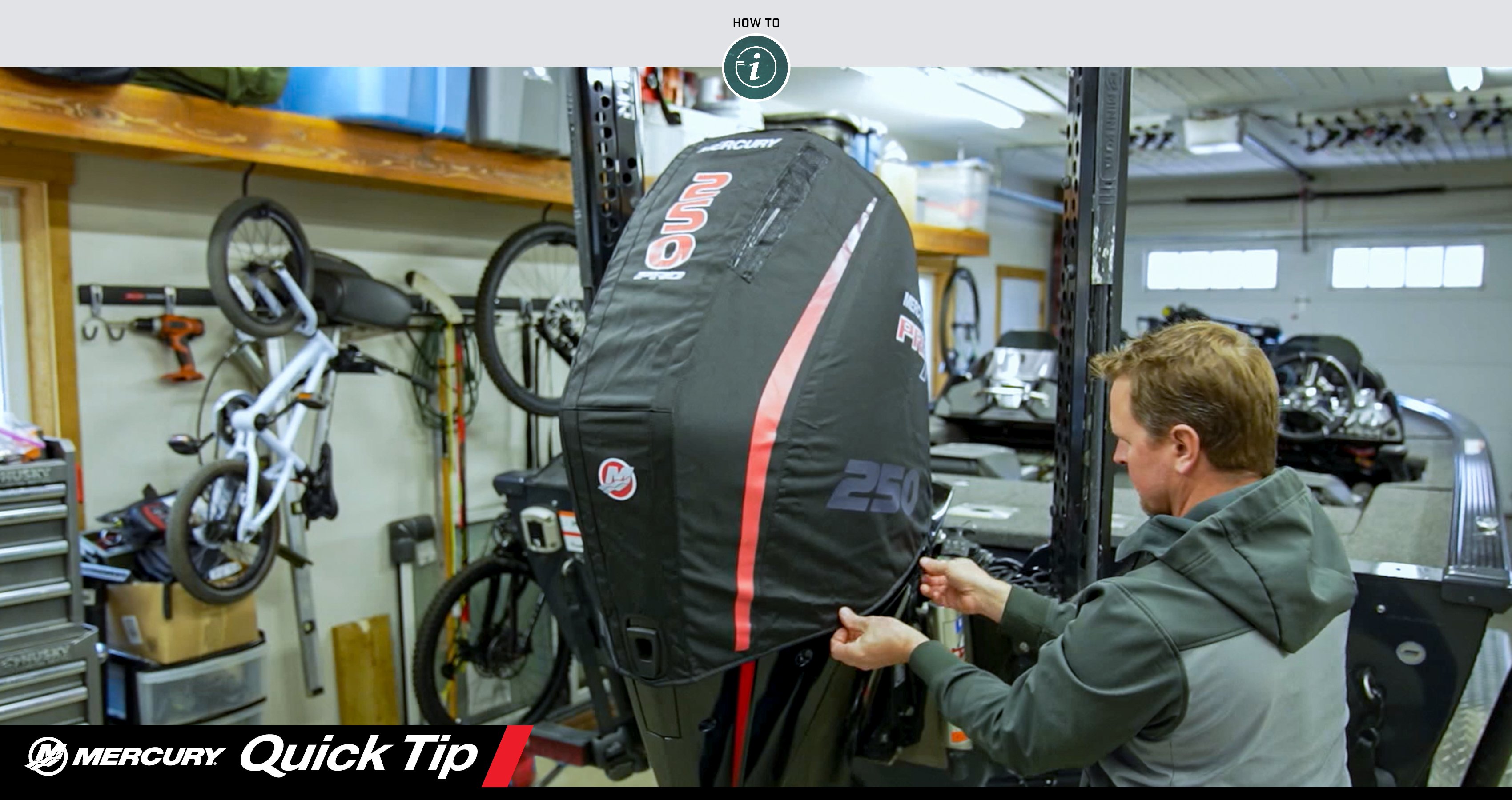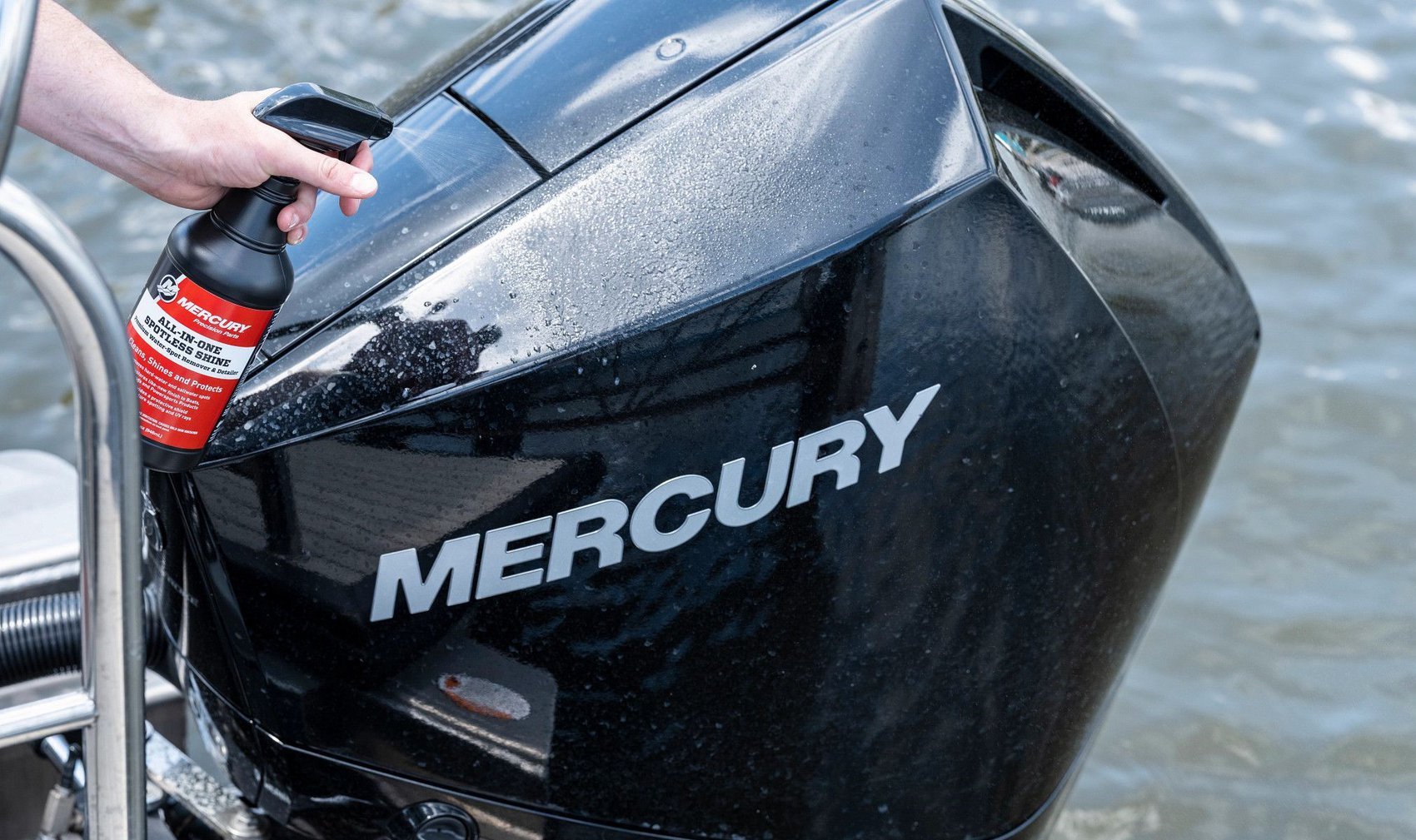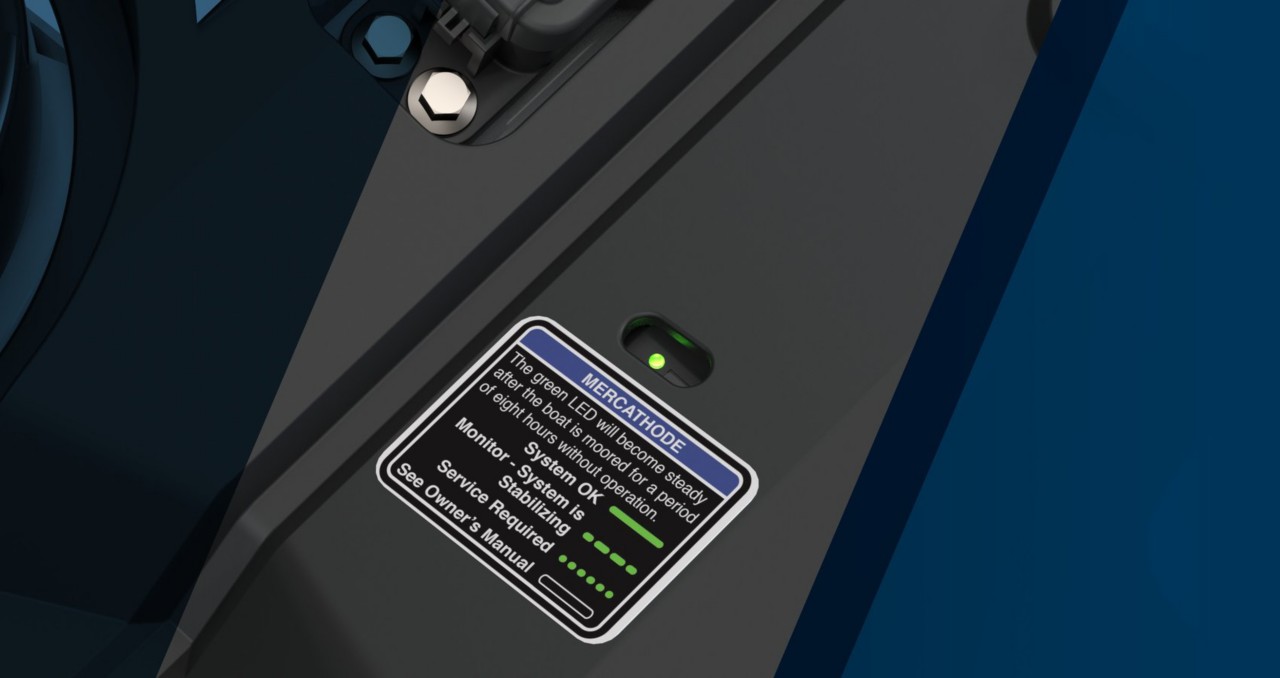Understanding Galvanic Corrosion
Galvanic corrosion is an electrochemical reaction between two or more dissimilar metals. The most common example of marine galvanic corrosion may occur between an aluminum lower unit and a stainless steel propeller. The aluminum is the more chemically active metal (the anode), and the stainless steel is the less active metal (the cathode). Galvanic corrosion of the more active metal can occur when dissimilar metals are immersed in a conductive solution. Saltwater, brackish water, freshwater with a very high mineral content and in some cases polluted water can be very conductive, and that conductivity goes up with water temperature. This is one reason why boats in Florida experience more corrosion than boats in Maine or Alaska.
One of the first signs of galvanic corrosion is paint blistering, starting on sharp edges below the waterline, with a white powdery substance forming on the exposed metal areas. As the corrosion continues, the exposed metal areas will become deeply pitted, and the metal will actually be eaten away. Galvanic corrosion of aluminum sterndrive units, or any other underwater aluminum on your boat, is accelerated by stainless steel components like propellers, powered trim tabs and aftermarket steering systems.
Defending Against Galvanic Corrosion
Sacrificial anodes are the first line of defense against galvanic corrosion that can attack boats that are kept moored in the water. The anodes are alloys of aluminum that are more chemically active than the aluminum alloy used to manufacture the outdrive and other propulsion parts. As the name implies, these anodes are designed to “sacrifice” themselves to any potential galvanic corrosion, and thus protect the aluminum drive components. Anodes are positioned in different locations on each sterndrive or outboard product (see your owner’s manual), including on the sterndrive lower gimbal housing, on the trim cylinders, on a tab below the anti-ventilation plate or on the propeller nut. Anodes may also be found on stainless steel trim tabs. Anodes should be inspected regularly and replaced when they have deteriorated to about one-half of their original size. Beware low-quality anodes, which may not have the precise alloy content of original equipment Mercury anodes and thus may not offer adequate protection. Consult with your Mercury Authorized Dealer to determine the best anode type for your boat and water conditions. Leave your sterndrive or outboard in the down position when the boat is moored to ensure that the anodes are in the water for maximum corrosion protection.
Boaters can also rely on the Mercury Precision MerCathode system, which provides active, automatic protection against galvanic corrosion. It is a solid-state device powered by the boat's 12-volt battery and provides protection by impressing a reverse-blocking current in the water that stops the destructive flow of galvanic currents. MerCathode has three parts – a controller mounted on the engine, a small anode that is mounted below the waterline under the sterndrive gimbal housing and a voltage reference cell on the anode housing. The MerCathode unit is always powered, even when the boat ignition is off, and over time will drain the battery if it is not connected to a charger.
If your power package does not come already equipped with a MerCathode system, Mercury strongly recommends that you install one, particularly if your boat is equipped with a stainless steel propeller or other submerged stainless steel hardware. In some extreme situations a Mercury dealer may advise installing a second MerCathode system for added protection. The MerCathode system should be tested annually by an authorized dealer for proper operation, and it needs to be kept clean and should never be painted.
Galvanic corrosion can be accelerated if the bonding system is disrupted. The bonding system is a series of fine stainless steel and copper cables, wires and tabs that link all the drive components to a common ground in the boat. The bonding system allows the aluminum anodes and MerCathode system to better protect the drive system from galvanic corrosion. If any of the bonding elements breaks, or is left disconnected after service, the ground is disrupted. If you notice one of these ground wires is damaged or disconnected, consult with a Mercury Authorized Dealer to have it repaired or reconnected.
To learn more about protecting your drive system from corrosion, consult your owner’s manual, or talk to a Mercury Authorized Dealer.




